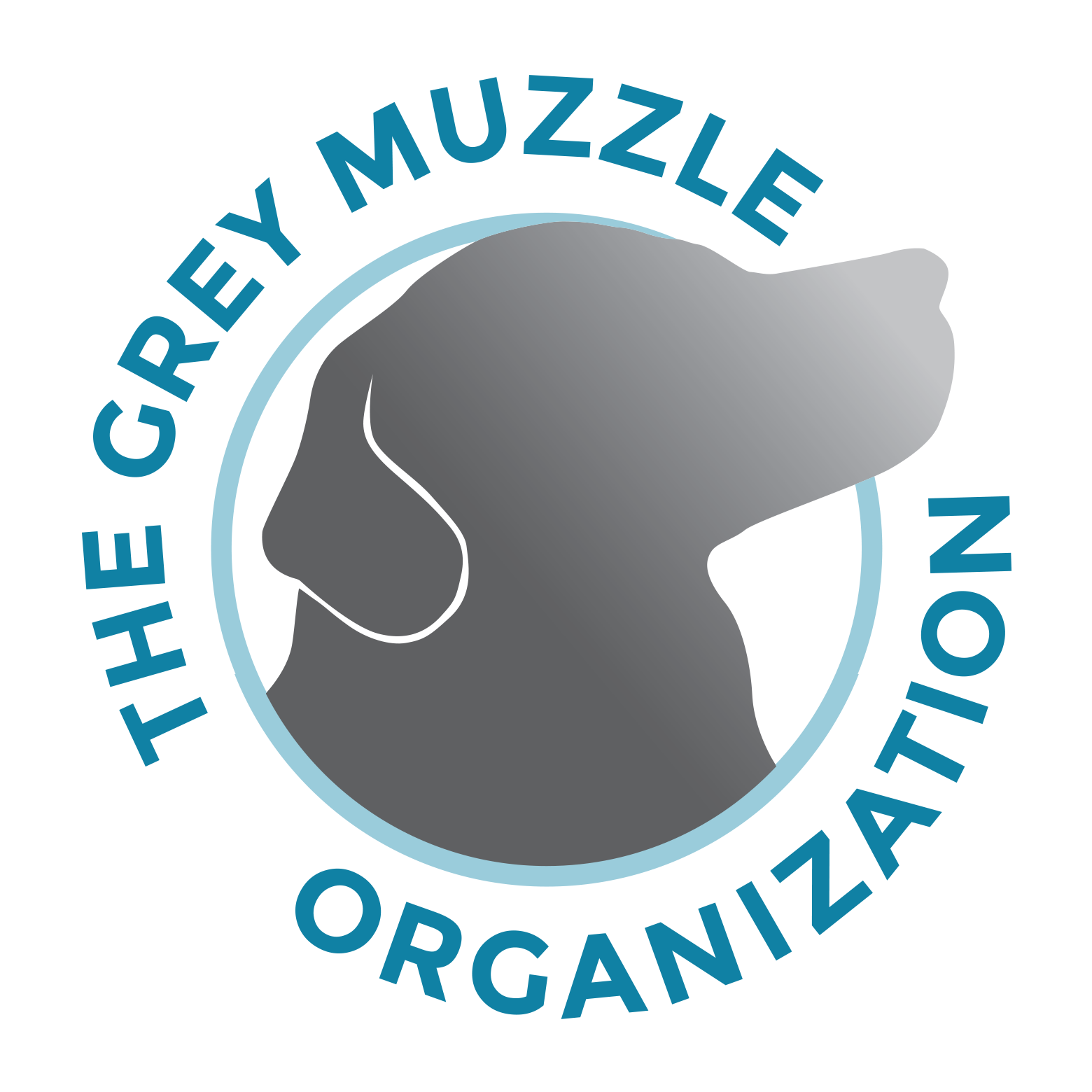Moving to a New Home with your Older Dog by Devin Morrissey
This article has been republished for exclusive use by The Grey Muzzle Organization with the permission of original author, Devin Morrissey.
Moving can be stressful for more than just a few reasons. Packing, timing, starting a new chapter and relocating is a lot for both you and your pet to handle. When your senior pet sees everything that is familiar to them put into boxes and then moved out of the house, it ignites their anxiety and causes confusion.
Keep with the Routine
As a responsible pet parent, you should try your best to calm your older pet and keep changes to a minimum during this time of transition. This is especially important after relocating. Your dog can’t simply escape to get a massage after the last box is unpacked in your new home like you can. Transitions are especially difficult on older animals and it is likely that they will be stressed for a couple of weeks after the move.
If you have a routine that you and your pooch have stuck to throughout the years, try to adhere to that schedule. If they routinely get breakfast at a certain time, expect to be let outside to go to the bathroom or look forward to afternoon walks, give them what they are used to. It may not solve the anxiety immediately, but it will help to calm their nerves to know that not all things are changing, just location for now. Once they get settled, it will be easier to start to adjust their schedule if you have taken a new job or have other demands that require you to do so.
Smells are Important
Have you ever come home after petting another dog and your own acts as if you have commited treason? Smells and odors are very important to them, especially for companions that you have had for years. Hold on to blankets, towels, clothes and bedding that have familiar scents to your pup and place them around the new house. It may be your first instinct to replace all those college hand-me-downs after purchasing your first home but try to refrain from it, at least for the first few weeks while your pet gets settled. If you have the uncontrollable urge to purchase new items for the home, do it in the form of treats and toys to add to their old bed or crate so that they feel both loved and at home.
Quality Time
It is easy to get distracted and let yourself get caught up in the madness of the move. Take the time to slow down and give your pet some love and attention. Get down on the floor with them and roll around on your new clean rugs — they will never be as clean as when you first move in. Take leisurely walks together and explore your new neighborhood to allow both of you to get oriented with your new surroundings. If your dog has been allowed to sleep with you in the past, don’t change that routine up now. Instead, snuggle for a few minutes longer after your alarm goes off in the morning to reassure them of their place in the family — right next to your heart. Remember, you can always vacuum off your bed or couch later. If you can find the time to take a few days off before rolling back into the work grind, your pup will thank you endlessly for helping them to get settled into their new home.
Moving has different impacts on different dogs and cannot be expected to look the same each time. Senior dogs are victim to their routine and can be thrown out of whack rather easily. Be patient as you enter into the next chapter in a new place. With a little time and nurturing, you both will find your comfort zone and hit your stride once again.
Devin roams the Pacific Northwest, bringing his dog, Scrummy, whenever possible. He is a strong believer that nothing can compare to a dog's unconditional love.
You can follow him and Scrummy on Twitter.



